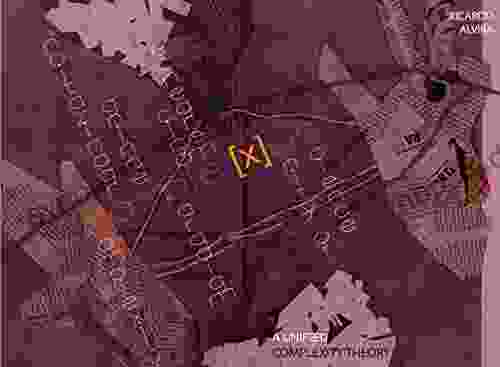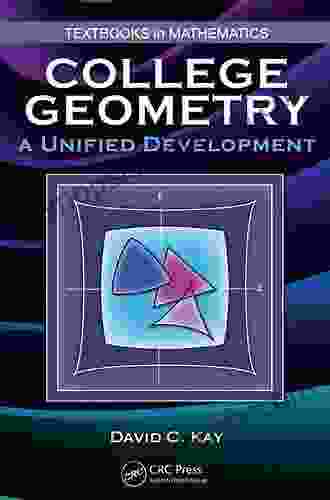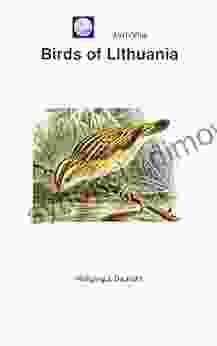Unveil the Secrets of Unified Complexity Theory: Prepare for a Paradigm Shift with Ricardo Alvira's Masterpiece

:
Prepare to embark on an intellectual journey that will reshape your understanding of complexity and the intricate tapestry of the universe. Ricardo Alvira, a renowned physicist and complexity theorist, presents his groundbreaking work in "Unified Complexity Theory." This magnum opus offers a profound and comprehensive framework that unravels the complexities of natural and artificial systems, from the cosmos to the intricate workings of the human brain.
Understanding Unified Complexity Theory:
At the heart of Ricardo Alvira's theory lies the notion that complexity is not merely a property of a system but rather an intrinsic aspect of its organization. The theory proposes that all complex systems, regardless of their nature, share fundamental principles and exhibit common patterns of behavior. Alvira's work provides a unifying framework that encompasses a wide range of disciplines, including physics, biology, computer science, and economics, demonstrating the ubiquitous presence of complexity in the universe.
5 out of 5
| Language | : | English |
| File size | : | 16978 KB |
| Text-to-Speech | : | Enabled |
| Screen Reader | : | Supported |
| Enhanced typesetting | : | Enabled |
| Word Wise | : | Enabled |
| Print length | : | 276 pages |
| Lending | : | Enabled |
The Pillars of Unified Complexity Theory:
Unified Complexity Theory rests upon three fundamental principles:
- Emergence: Complexity arises from the interaction of simpler components, leading to the emergence of new properties and behaviors that cannot be predicted from the properties of the individual components.
- Hierarchical Organization: Complex systems exhibit a hierarchical organization, with sub-systems that interact and contribute to the overall function and behavior of the system.
- Self-Organization: Complex systems have the capacity to self-organize, adapt to changing conditions, and maintain a state of dynamic equilibrium, often through feedback mechanisms.
Key Concepts and Applications:
"Unified Complexity Theory" explores a vast array of key concepts and applications, offering insights into the behavior of complex systems across various fields:
- Fractal Structures: Alvira examines the prevalence of fractal structures in natural and artificial systems, highlighting their role in pattern formation and scaling properties.
- Chaos and Free Download: The theory explores the interplay between chaos and Free Download in complex systems, demonstrating how chaotic behavior can lead to the emergence of patterns and stability.
- Artificial Intelligence: Alvira investigates the implications of complexity theory for artificial intelligence, suggesting that complex systems approaches can lead to advancements in machine learning and consciousness research.
- Economic Systems: The theory provides a novel perspective on economic systems, emphasizing the importance of emergence, self-organization, and hierarchical structures in understanding economic dynamics.
Paradigm Shift in Scientific Thinking:
"Unified Complexity Theory" challenges traditional scientific paradigms, advocating for a holistic and interdisciplinary approach to understanding the universe. Alvira's work bridges the gaps between different scientific disciplines, offering a more comprehensive and unified understanding of both natural and man-made systems.
Impact on Science and Beyond:
The implications of Unified Complexity Theory extend far beyond theoretical physics. The theory has the potential to transform our understanding of a wide range of fields, including:
- Medicine: Predicting and preventing complex diseases, understanding physiological systems, and developing personalized medicine approaches.
- Engineering: Designing more efficient and resilient systems in fields such as energy, transportation, and communication.
- Social Sciences: Analyzing social dynamics, understanding the emergence of complex social structures, and predicting crowd behavior.
- Philosophy: Re-examining fundamental questions about the nature of reality, consciousness, and the role of complexity in shaping our universe.
:
Ricardo Alvira's "Unified Complexity Theory" is a groundbreaking work that provides an unprecedented understanding of complex systems. By delving into the principles of emergence, hierarchical organization, and self-organization, Alvira offers a comprehensive framework that unifies diverse fields and has the potential to revolutionize our scientific thinking. This seminal work is a must-read for anyone interested in unlocking the secrets of complexity and gaining a deeper appreciation for the intricate interconnectedness of the universe.
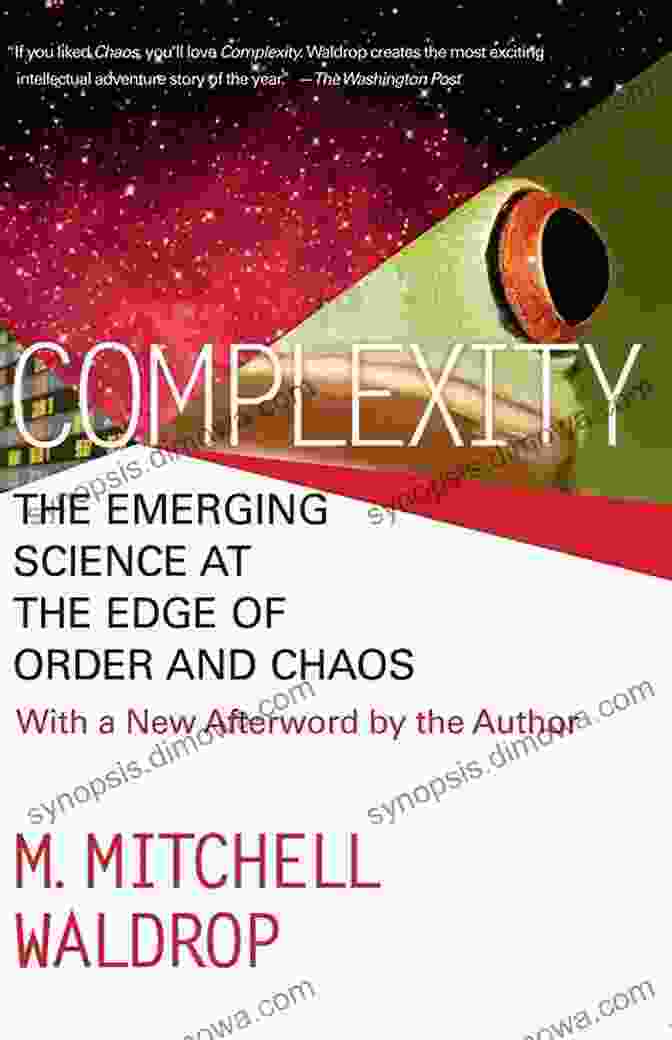
5 out of 5
| Language | : | English |
| File size | : | 16978 KB |
| Text-to-Speech | : | Enabled |
| Screen Reader | : | Supported |
| Enhanced typesetting | : | Enabled |
| Word Wise | : | Enabled |
| Print length | : | 276 pages |
| Lending | : | Enabled |
Do you want to contribute by writing guest posts on this blog?
Please contact us and send us a resume of previous articles that you have written.
 Book
Book Novel
Novel Page
Page Chapter
Chapter Text
Text Story
Story Genre
Genre Reader
Reader Library
Library Paperback
Paperback E-book
E-book Magazine
Magazine Newspaper
Newspaper Paragraph
Paragraph Sentence
Sentence Bookmark
Bookmark Shelf
Shelf Glossary
Glossary Bibliography
Bibliography Foreword
Foreword Preface
Preface Synopsis
Synopsis Annotation
Annotation Footnote
Footnote Manuscript
Manuscript Scroll
Scroll Codex
Codex Tome
Tome Bestseller
Bestseller Classics
Classics Library card
Library card Narrative
Narrative Biography
Biography Autobiography
Autobiography Memoir
Memoir Reference
Reference Encyclopedia
Encyclopedia De Branna Anne Thomas
De Branna Anne Thomas David Rock
David Rock Julie Sprigg
Julie Sprigg Glen Van Brummelen
Glen Van Brummelen Deepak Chopra
Deepak Chopra David Anthony
David Anthony David Dulany
David Dulany Mario Canton
Mario Canton David Kudler
David Kudler Monte Burke
Monte Burke David S Scott
David S Scott Derek Hawkins
Derek Hawkins David T Holmstrom
David T Holmstrom Debora Emmert
Debora Emmert David R Wommack
David R Wommack Deborah Ruddell
Deborah Ruddell David Crowell
David Crowell David Brawn
David Brawn Susan Arrington Madsen
Susan Arrington Madsen Deborah Grace Winer
Deborah Grace Winer
Light bulbAdvertise smarter! Our strategic ad space ensures maximum exposure. Reserve your spot today!

 Warren BellUnlock Your Limitless Potential: Embark on a Transformative Journey with "The...
Warren BellUnlock Your Limitless Potential: Embark on a Transformative Journey with "The... Ted SimmonsFollow ·17.6k
Ted SimmonsFollow ·17.6k Ricky BellFollow ·15.2k
Ricky BellFollow ·15.2k Tony CarterFollow ·7k
Tony CarterFollow ·7k Juan RulfoFollow ·4.6k
Juan RulfoFollow ·4.6k Hugo CoxFollow ·8.6k
Hugo CoxFollow ·8.6k Jett PowellFollow ·16.3k
Jett PowellFollow ·16.3k Tennessee WilliamsFollow ·4.8k
Tennessee WilliamsFollow ·4.8k Zachary CoxFollow ·18.9k
Zachary CoxFollow ·18.9k

 Aron Cox
Aron CoxMastering Project Management: The Ultimate Guide to...
In today's competitive...

 Dominic Simmons
Dominic SimmonsLet's Build Sue Fliess: Unleash the Polychrome Master...
Chapter 1: The...
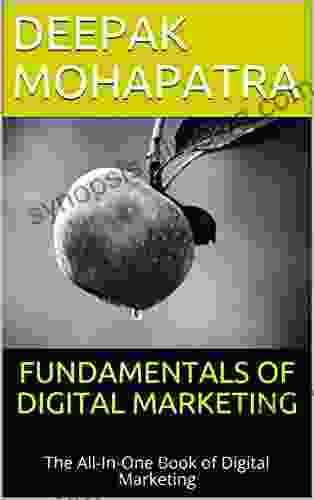
 Mason Powell
Mason PowellMaster the Digital Marketing Landscape: Fundamentals of...
In the age of digital...

 Aubrey Blair
Aubrey BlairUncover the Secrets of Ancient Blades and Enchanting...
Embark on an Enchanting Journey into the...

 Shannon Simmons
Shannon SimmonsUnleash the Spooktacular with Spooky Crochet Tutorials...
Prepare to be spooked...

 Cade Simmons
Cade SimmonsImmerse Your Little Ones in a World of Enchantment with...
Nursery rhymes have forever ignited the...
5 out of 5
| Language | : | English |
| File size | : | 16978 KB |
| Text-to-Speech | : | Enabled |
| Screen Reader | : | Supported |
| Enhanced typesetting | : | Enabled |
| Word Wise | : | Enabled |
| Print length | : | 276 pages |
| Lending | : | Enabled |


